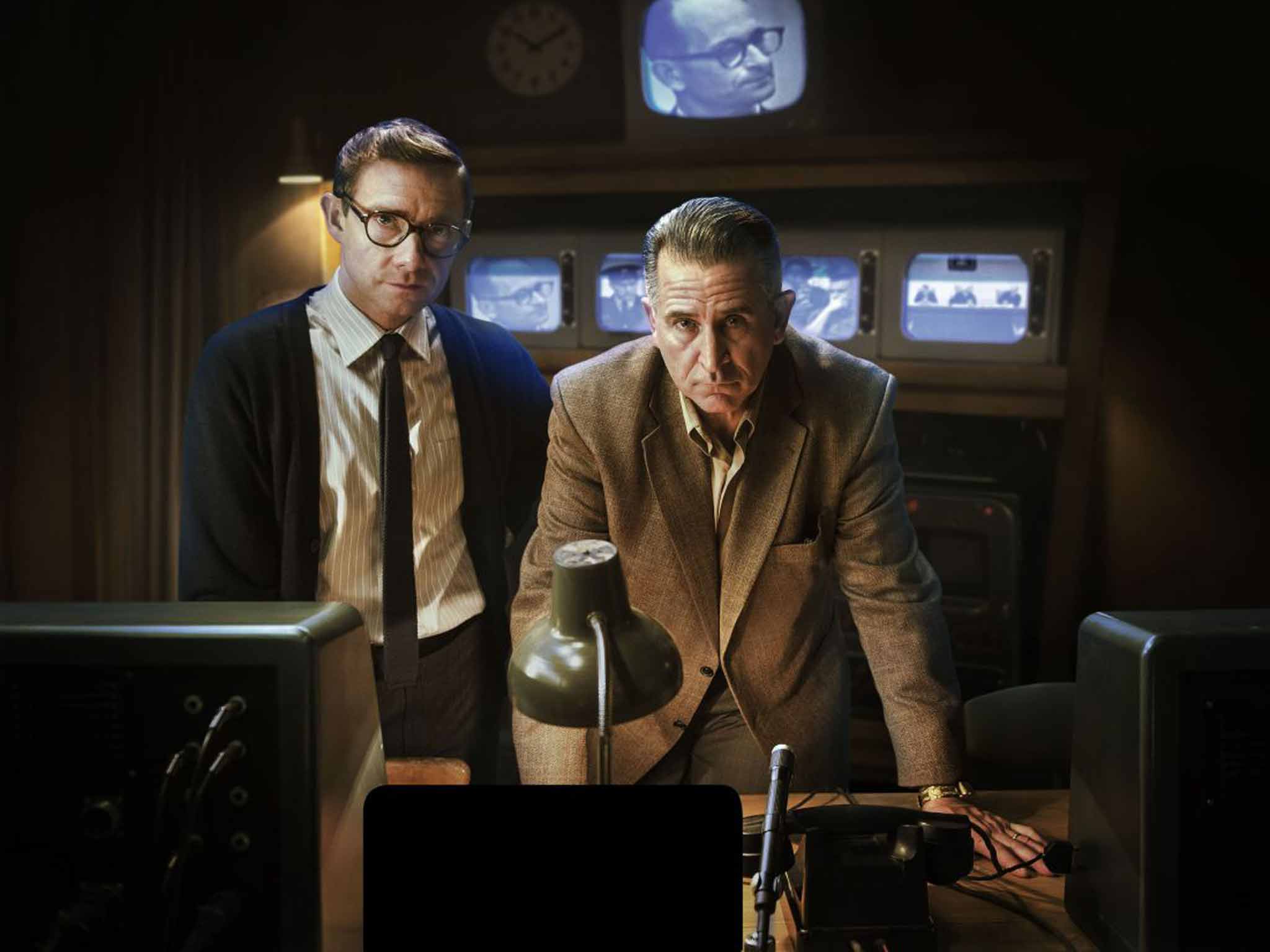The Eichmann Show, BBC2 - TV review: A deft docu-drama puts Eichmann back in the dock
The real drama of this story took place not in the camera-control room, but in the courtroom itself

Your support helps us to tell the story
From reproductive rights to climate change to Big Tech, The Independent is on the ground when the story is developing. Whether it's investigating the financials of Elon Musk's pro-Trump PAC or producing our latest documentary, 'The A Word', which shines a light on the American women fighting for reproductive rights, we know how important it is to parse out the facts from the messaging.
At such a critical moment in US history, we need reporters on the ground. Your donation allows us to keep sending journalists to speak to both sides of the story.
The Independent is trusted by Americans across the entire political spectrum. And unlike many other quality news outlets, we choose not to lock Americans out of our reporting and analysis with paywalls. We believe quality journalism should be available to everyone, paid for by those who can afford it.
Your support makes all the difference.In 1961, a year after Adolf Eichmann was apprehended in Argentina, this chief architect of the Holocaust finally went on trial in Israel. The footage was shown on TV in 37 countries and for the first time the world was confronted with the true extent of Nazi atrocities, directly from the mouths of survivors. It was producer Milton Fruchtman and director Leo Hurwitz who made that broadcast possible and it was their story that The Eichmann Show told, as part of the BBC’s Holocaust Memorial season.
Martin Freeman starred as Fruchtman – bad news, if you found his American accent grating in Fargo – and is believable if unspectacular as the man who drove the project forward. Anthony LaPaglia (Without a Trace) was Hurwitz, the brilliant but blacklisted director who became obsessed with capturing Eichmann’s humanity on camera.
Between them they sought permission to film directly from the Prime Minister of Israel, devised an ingenious way to disguise the cameras from view, all the while fielding death threats from Nazi supporters – a disturbing amount of whom still existed, even in 1961.
These guys are undoubtedly unsung heroes of history, men who acted on the belief that we must remember the past or be condemned to repeat it, but there’s a reason that the behind-the-scenes work of television usually remains just that: behind the scenes.
The real drama of this story took place not in the camera-control room, but in the courtroom itself. Wisely, director Paul Andrew Williams did not attempt a creaky re-enactment of these courtroom scenes but included the original 1961 footage, giving a new generation the opportunity to stare into the inexpressive eyes of evil.
No dramatised scene could have the same devastating impact as this archive footage, but solid supporting performances from Rebecca Front and Nicholas Woodeson helped add depth to our understanding of concentration camp survivors in Israel. She played Mrs Landau, the brusque B&B landlady who helped Hurwitz appreciate the importance of his work, and he was Yaakov Jonilowicz, the cameraman who broke down during filming. If you saw Williams’ Murdered By My Boyfriend last year, his adept handling of docu-drama will come as no surprise.
Join our commenting forum
Join thought-provoking conversations, follow other Independent readers and see their replies
Comments